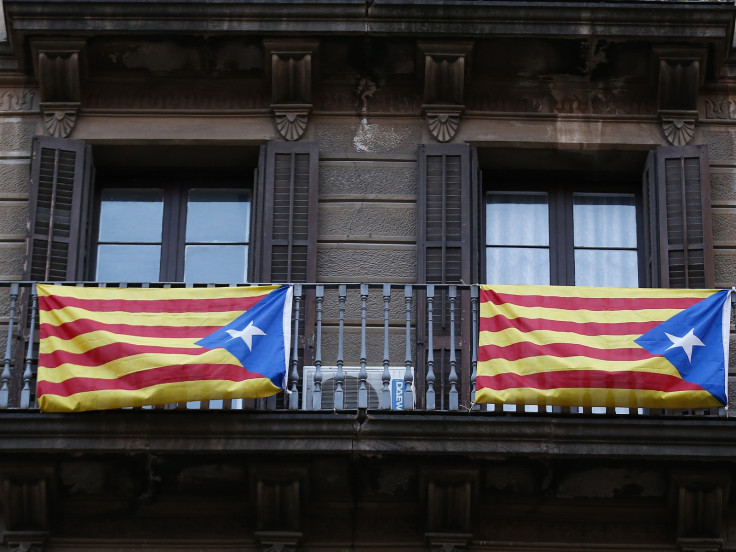Parents and students occupy schools to defend Catalan vote
The Spanish government considers the referendum illegal but regional separatists have vowed to go ahead with balloting.
Parents, children and activists in Catalonia are starting a day of activities after spending the night in schools designated as polling stations for Sunday's (1 October's) vote on the region's independence from Spain.
Yoga sessions, film screenings and picnics have been organised at some of the 2,315 voting facilities that referendum supporters are trying to keep police from shutting down.
The Spanish government considers the referendum illegal and the country's Constitutional Court has suspended it, but regional separatists have vowed to go ahead with balloting.
The Catalan police force is under orders to empty the buildings by early Sunday.
Officers have been directed to refrain from using violence to remove parents and students.
How the 17,000 regional officers respond to the vacate order is seen as key to the success or failure of the planned vote.
Across Europe, people are watching Catalonia's independence referendum closely and nervously — but quietly.
A strong turnout that results in a majority vote for the "yes" side on Sunday could embolden other breakaway-minded regions. A secession trend on the continent would put new strains on the European Union.
Scotland, Belgium's Flanders region and the Faroe Islands under Denmark's control are some of the places with independence movements.
Despite tensions behind the scenes, most European leaders are shying away from taking a public stand on Catalonia.

They're reluctant to back either the Catalan separatists who are bucking Spanish law to hold the referendum or Prime Minister Mariano Rajoy's heavy-handed efforts to block it.
The EU's silence has been especially conspicuous since Catalan officials appealed to the bloc directly to mediate the dispute.
© Copyright IBTimes 2025. All rights reserved.




















